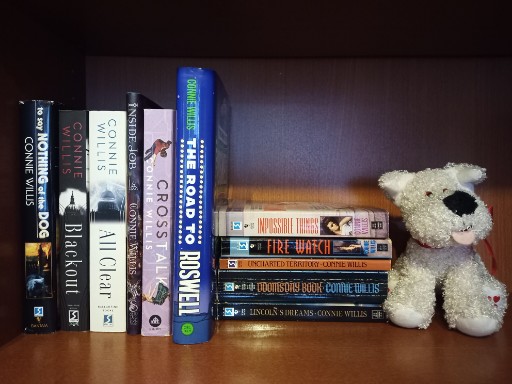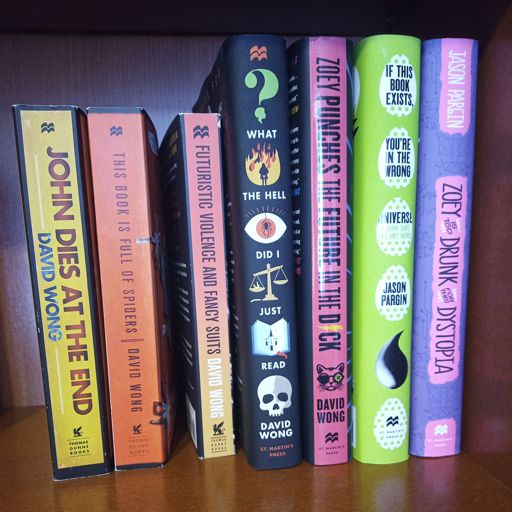Much of Connie Willis‘ novels can be pigeonholed as “romantic comedies”, where two young people thrown together into a difficult situation manage to overcome adversity and wind up falling in love. There’s nothing wrong with that, and it does make me wonder why none of her books have been made into movies. This kind of energetic romp plays very well with general audiences, and Willis’ “difficult situations” are usually sfnal in nature so they appeal to genre audiences as well.
Can two people find love while traveling through time for the History Department of a major university? Can two people find love while being psychically linked to somebody they dislike? Can two people find love while researching death and the possibility of an afterlife? Can two people find love while finding out the truth about interplanetary aliens on Earth and alien abduction?
That last one, of course is the premise of The Road to Roswell. Our main characters are actually abducted by aliens, but it’s not what you think! Everybody is still on Earth, and they really are on the road, and the road does lead to (and from) Roswell. The cast is what you might expect in any Western: a kidnapped damsel, a criminal on the run, a lying conman, a lonesome cowboy, a dishonest gambler, and a religious fanatic. Most are not played by the stereotype you might expect from that description, however. The criminal on the run is a space alien who resembles a tumbleweed. The fanatic follows the ‘religion’ of UFOlogy and quotes from its sacred texts about abduction and history.
This book is also about communication, and how hard it can be to communicate when it’s not just that you don’t share a language, but you don’t share basic concepts. What is alien, anyway? What is love? How do you tell somebody what you’re looking for and where to find it when you can’t describe it and you’re not sure where you are? This is the kind of thing that Connie Willis is really good at. I saw her speak at an SF conference long ago, and she is literally charming. Her unassuming language and subtle presentation style have a lovely way of suggetsing these deeper concepts bit by bit until suddenly your head is in the right place to really “get it”, youknowwhatimean?
I’ve enjoyed previous books from Connie Willis, and I enjoyed this one. I feel it bogs down a little in the middle, though. It’s part of the story, but even the characters start to get confused about what’s going on and what they are doing. This all pays off in the end, and the pace picks up towards the crashing conclusion where they all live happily (?) ever after (?). When’s the movie coming out?




